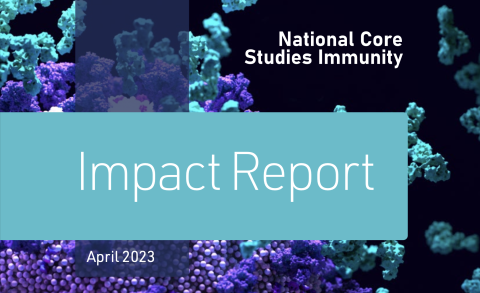
The National Core Studies (NCS) Immunity Programme has set out its impact in a new report published today.
NCS Immunity was one of six National Core Studies set up by the Government Office for Science in the summer of 2020 to respond to important strategic, policy and operational questions about COVID-19. It was led by Paul Moss, Professor of Haematology at the University of Birmingham, funded by UK Research and Innovation and supported by the British Society for Immunology.
The aim of the programme was to deepen our understanding of immunity against COVID-19, including how to predict individual risk and protect against serious infection, how to use vaccines most effectively, and how to prepare for future pandemics.
The report sets out the impact of the programme, covering five key areas:
- Key scientific achievements
- Delivering rapid benefit to the population
- Forging lasting collaborations
- Patient and public involvement and engagement
- Paving the way for future discoveries
Professor Paul Moss, lead for NCS Immunity, said:
I am immensely proud of how the teams that came together as part of NCS Immunity embraced the spirit of ‘team science’, and were determined to be more than the sum of each individual team’s contribution. The full impact of their work will be felt long into the future and I am excited to see what further breakthroughs will come of the innovative techniques, the wealth of data and samples, and the new alliances that have been struck.
NCS Immunity published a separate report on Patient and Public Involvement in December.
The COVID-19 National Core Studies were a key part of the UK’s pandemic response. They enabled the UK to use health data and research to inform responses to COVID-19, as well as accelerating progress to establish a world-leading health data and research infrastructure for the future.
